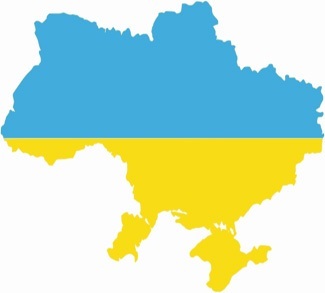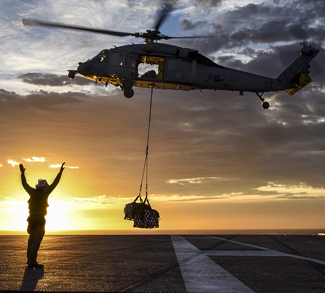Giving the keynote speech to the London Defence Conference on May 22, Britain’s Defence Minister Grant Shapps affirmed, again, how the United Kingdom is the leader of the West in fighting the axis of authoritarian states led by Russia and including China, Iran, and North Korea. Britain’s foreign policy will not change when the Labour Party wins the July 4 election, which opinion polls show is likely to happen.
The West is divided into two groups in this fight, with the hawks led by Britain declaring as their goal Russia’s military defeat. Britain’s hawkish allies include four Nordic countries, three Baltic states, Poland, and the Czech Republic. Together they have been early in sending tanks, armoured vehicles, and missiles and supported Ukraine’s right to use them inside Russia.
The United States and Germany have never outlined Russia’s military defeat as their goal, and this has influenced their slow delivery of military equipment to Ukraine; their initial unwillingness to send tanks and jets; and their continued opposition to using the weapons they provide inside Russia. Washington has also stated its disagreement with Ukraine’s attacks against Russian energy installations.
Schapps showed that Britain is also declaring itself to be more hawkish towards Russia’s authoritarian allies – especially China. Britain began following the U.S. in being more critical of China during the Trump presidency. In 2020, the UK announced it would not purchase Huawei 5G technology for its telecom networks, and any Huawei technology should be removed from mobile networks by 2027.
Britain is now taking a more radical stance than the United States on China’s military alliance with Russia. Schapps said, ‘And today I can reveal that we have evidence that Russia and China are collaborating on combat equipment for use in Ukraine.’ He pointed to a high 64% growth in trade between Russia and China since the full-scale invasion of Ukraine.
The less hawkish Biden administration in the U.S. disputed the British claim of China supplying military equipment to Russia. US National security advisor Jake Sullivan found Shapps’ comments baffling: ‘I look forward to speaking with the UK to make sure that we have a common operating picture we have had when we’ve been on the same page,’ adding that, ‘I just want to understand better what exactly that comment was referring to.’
The Biden administration has condemned China for providing key components to rebuild Russia’s industrial base but has not said that it is supplying military equipment. In this, the U.S. is using diplomatic language and playing with words. Secretary of State Antony Blinken said China is not providing ‘actual arms’ for ‘Russia for use in Ukraine.’ However, he did say that China is building up Moscow’s war machine by providing critical components ‘which are being used to help Russia on what’s an extraordinary crash course effort to make more munitions, tanks, armoured vehicles, [and] missiles.’ Russia is importing nearly three quarters of its machine tools and 90% of its microelectronics from China.
As the leader of the radical camp in the West, Schapps is being more direct and honest in stating what China is undertaking. The United States is using diplomatic language to camouflage its weak stance in international affairs, specifically towards Russia and China.
In effect, Britain recognizes the authoritarian axis of countries is at war with the West while the U.S. refuses to do so and prefers to keep its head in the sand like an ostrich. The most that Washington will do is impose sanctions on more than 100 Chinese entities.
In the first two years after the full-scale invasion, China maintained a pro-Russian neutrality and did not send military support to Russia. The weakness of the Biden administration in its support to Ukraine was the reason why China became emboldened in the third year of the war to send military equipment to Russia.
China watched how the U.S. in the first two years of the war feared ‘escalation’ and because of this has never supported Russia’s military defeat. China could see that the U.S. and Germany, Biden, and Chancellor Olaf Scholz, sent sufficient military aid to Ukraine for it to not to be defeated – but not enough for a Ukrainian military victory.
Such fears of escalation sent a signal to Russia and China of Western weakness and lack of political will to win the war. Consequently, Russia and China have escalated in their actions.
Chancellor Olaf Scholz and the German SPD (Social Democratic Party) and President Joe Biden and the US Democrats are weak six areas. They both oppose NATO membership for Ukraine, oppose a NATO no-fly zone over western Ukraine, and seek to freeze the conflict. Out of fear of ‘escalation’ they both do not support Russia’s military defeat. Finally, neither supports using their weapons inside Russia, and oppose Ukrainian attacks against energy installations in Russia.
The Kremlin has expanded its brutal war against Ukraine and undertakes a range of hybrid warfare activities (e.g., espionage, assassinations, terrorist explosions, disinformation, support for far-right political parties) throughout Europe. China meanwhile is threatening Taiwan with military exercises and verbal threats.
Biden and Scholz’s weakness in international affairs and unwillingness to accept that the West is at war with an axis of authoritarian states has only served to escalate the conflict by emboldening Russia, China, and Iran. The country that will suffer the most from Biden and Scholz’s lack of political will is Ukraine, with greater destruction and higher military and civilian casualties.
Britain should be praised for publicly condemning China for supporting Russia’s genocidal Ukraine war. The United States and Germany should be condemned for pursuing policies that have only emboldened Russia and China.
Taras Kuzio is a Professor of Political Science at the National University of Kyiv Mohyla Academy and author of Russian Nationalism and the Russian-Ukrainian War (Routledge, 2022).
The views expressed in this article belong to the author(s) alone and do not necessarily reflect those of Geopoliticalmonitor.com.




